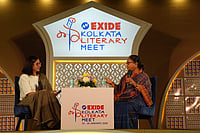“29 October, 6:08 pm
Ahmed, coming out from under the rubble, speaks to you…
The one who inhaled thousands of tons of dust… My colour is grey (in case you need to know my colour)…The one who was unable to count his family members, split between the colours (of red and grey)- if you were able to see the colours anyway.
Colours here do not have the luxury of being chosen. Red: You are full of blood. Grey: You have just embraced your and your neighbours’ houses and stones, and came out breathing.
Ahmed, who witnessed death a bit ago, and whose experience in psychological support failed to help him overcome the screams of children and mothers.
My words could not assist me in formulating anything to say that could comfort children’s hearts. In fact, I did not see anyone. I only knew they were alive from their screams (a tip for you: always know your loved ones’ screams, it is the only way you could recognize them, and know if they were alive or not).
I, Ahmed, hate all the dreams that I have. I no longer have beautiful family memories, no friends left to recognize, or a safe home to be in.
I, Ahmed, hate the world that cannot stop a war bigger than my heart and the hearts of children.
I am Ahmed, and I do not want to arrange this text, as I am in a hurry. I may not be able to publish it before another shell misses me, and both of us, the text and I, see the light.”
Amhed R Mortaja, a psychologist who serves as a programme officer at the Jerusalem-based NGO, Al Nayzak’s Gaza branch, trained over 300 adolescents and youth on capacity-building and civic-empowerment aspects over the past few years. But the war was getting on his nerves.
Just a day before this narrow escape from death, he wrote on Facebook that his tongue felt “knotted” and his language reflected confusion and fear.
“My letters come out stammering, full of inaudible screams,” he wrote. He was upset at having repeatedly failed to describe with his words what he had been witnessing. His language collapsed with the very first encounter with a child, whom he saw trying to describe an entire city burning, having never seen a fire bigger than a match in his life.
“I think about having a normal conversation that is bigger than ‘Did you find water?’ ‘Did you take a shower?’ ‘What did you have for lunch?’ ‘Are you happy?’ ‘Far or near?’ and I fail to find questions bigger than that,” he wrote.
The October 27 incident destabilised him all the more. Those alive shifted to a different locality but the situation was not much different – nonstop sounds of bombing, darkness, and occasional chances to use the internet. In a November 2 tweet, he suggested that Israel should nuke Gaza and get relieved of the Gazans for good. He was sure, “You will be able to justify it like the rest of the massacres you have committed.” He was also sure that the world would not do anything except ask Gazans for forgiveness.
In a November 18 Facebook post, Mortaja wrote about living “a terrifying nightmare” called ‘war’ – “with my eyes open, which to this day have not had two hours of peaceful, uninterrupted, safe, and happy sleep.”
He wrote that he considered himself lucky to be able to manage his coffee and that he spends a lot of time searching for an economical way to make coffee. He declared, “From my simple experience now: coffee satisfies your hunger for the longest possible period.”
He asked which sound was faster – the sound of the rocket, or the scream of a child who picked up the rocket with his mouth and spat it out while pronouncing the Shahada (declaration of faith in no god but Allah). He then warned, “Do not immerse yourself too much into that question, because while you are thinking of a smart, logical answer, there is another child who fell while reciting the screams.” He said he keeps asking himself questions, considering it the only way “to save me from madness.”
In a post on November 24, he remembered a child, whom he tried to save with his first aid skills but could not, asking him before dying, “Does the one who put us in war realize that our hearts are small and cannot bear war?” Since then, his memory "has not stopped collecting the screams of children.”
Memories, questions, and confusion started crowding his mind. There were too many reasons to cry, to go mad, to break down. Yet, questions about his true nature and human nature in general plagued him.
In one Facebook post on December 3, he wrote that he was composing the text while shivering. Even though he tried to justify this shivering by telling himself that he was shivering from cold, and not from fear, he was actually shivering from both cold and fear. He asked himself what was for him the true definition of fear, finding especially that he ‘was the first to run upon hearing the sound of shrapnel flying towards us.’
“What was I afraid of? And why do they call fleeing ‘the sweetness of the soul’ when what happens is the opposite of sweetness,” he asked in that post.
Such existentialist questions were not enough. He wanted to "cry continuously and uncontrollably, away from anything that interrupts my crying,” he wrote in a December 6 post on Facebook. He wanted the world to allow his tears to mix as much as possible with the blood being spilled. He wanted to taste the saltiness of his tears. “And with every pinch of salt, I curse the world a thousand times,” he wrote.
Mortaja was disappointed that he did not have enough time to tell the world about the friends he lost and what they were dreaming of. Things kept turning only worse. No one knew if the place where they settled after displacement was safe. People were scared of everything, even if someone sneezed without giving a warning. The only way to communicate with friends and family was to take the risk of physically visiting where they were or waiting for any news to come, which might well be false.
“Clear and widespread fatigue, like a deadly infection, on the faces of everyone around me, including the writer of this bulletin,” he wrote on December 17, appearing on a social media platform after a 10-day break. Then there was silence again.
(Outlook tried to contact him several times but was unsuccessful. The English translation of his October 27 post has been done by volunteers at Gaza Passages, which encourages wider circulation of the text.)
Questions That Keep Gaza Psychologist Ahmed R Mortaja From Madness
Just a day before this narrow escape from death, Amhed R Mortaja wrote on Facebook that his tongue felt 'knotted' and his language reflected confusion and fear.

A man holds the remains of his mother wrapped in blanket amid rubble after an Israeli strike in Gaza
A man holds the remains of his mother wrapped in blanket amid rubble after an Israeli strike in Gaza
Published At:
MOST POPULAR
WATCH
MORE FROM THE AUTHOR
PHOTOS
×





















